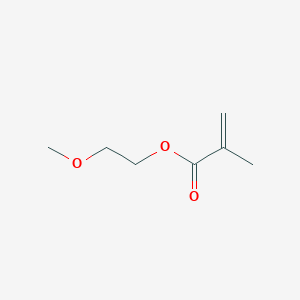-
Categories
-
Pharmaceutical Intermediates
-
Active Pharmaceutical Ingredients
-
Food Additives
- Industrial Coatings
- Agrochemicals
- Dyes and Pigments
- Surfactant
- Flavors and Fragrances
- Chemical Reagents
- Catalyst and Auxiliary
- Natural Products
- Inorganic Chemistry
-
Organic Chemistry
-
Biochemical Engineering
- Analytical Chemistry
- Cosmetic Ingredient
-
Pharmaceutical Intermediates
Promotion
ECHEMI Mall
Wholesale
Weekly Price
Exhibition
News
-
Trade Service
The huge carbon sink capacity of the ocean plays a key role in climate control
.
The biological mechanisms driving ocean carbon sinks mainly include the biological pump pathway mediated by phytoplankton (microalgae) and the microbiological carbon pump pathway mediated by microorganisms
Land-source input is an important reason for the continuous degradation of offshore ecosystems
.
At present, there are more than 17,000 kinds of herbicide products on the global market.
The investigation of 22 herbicides in the Yellow Sea and the Bohai Sea by Zhang Yongyu’s team from the Marine Carbon Sequestration and Energy Microbiology Research Group of Qingdao Institute of Bioenergy and Processes, Chinese Academy of Sciences revealed that the detection rate of herbicides within 100 kilometers offshore is as high as 100%, and there is Higher stability, the highest value appears in the estuary area, the highest concentration is the triazine herbicides widely used on land, showing a phenomenon that the concentration of offshore herbicides in spring is higher than that in autumn
.
The Qingdao Institute of Energy Research revealed that under the stress of environmental concentrations of triazine herbicides (such as atrazine), the growth and photosynthetic efficiency of the phytoplankton community is weakened by 29%-63%, and the structure of the phytoplankton community will also be affected by this.
Dramatic changes have taken place
.
The most severely inhibited by herbicides is diatoms, while the heterotrophic dinoflagellates are relatively weakly affected, resulting in a drastic change in the coastal phytoplankton community from diatoms to harmful dinoflagellates
Related results were published in the journal Limnology and Oceanography
.
The research is supported by the key R&D project of the Ministry of Science and Technology, the key project of the National Natural Science Foundation of China-Shandong Joint Fund, and the "Science Number" high-end user project of the Ocean Science Center of the Chinese Academy of Sciences
Potential impact of terrestrial herbicide input on offshore carbon sinks driven by phytoplankton and microbial communities







